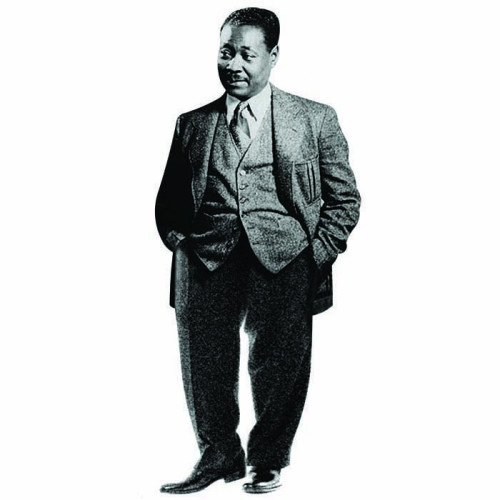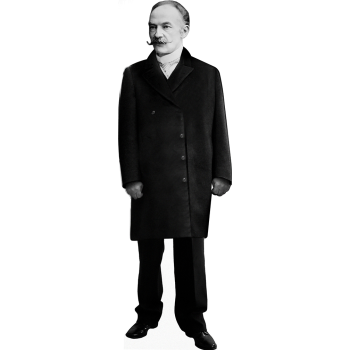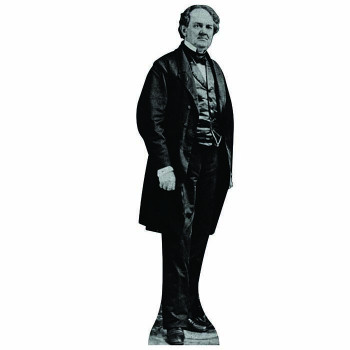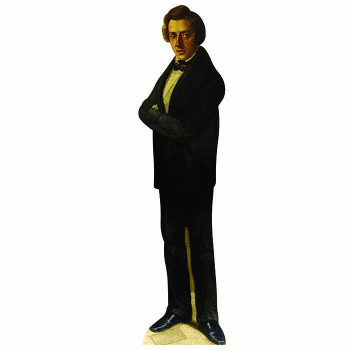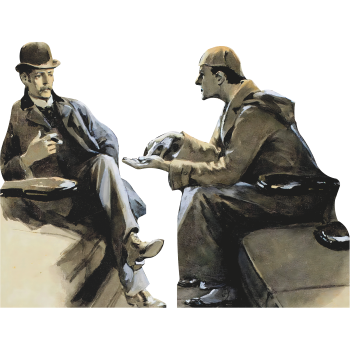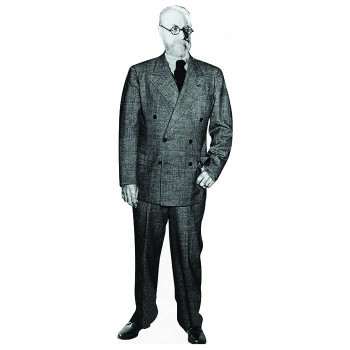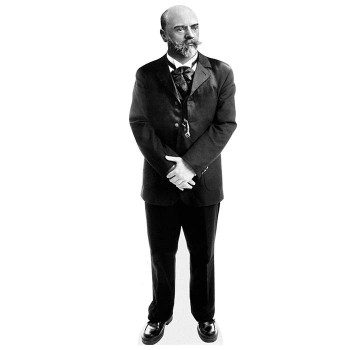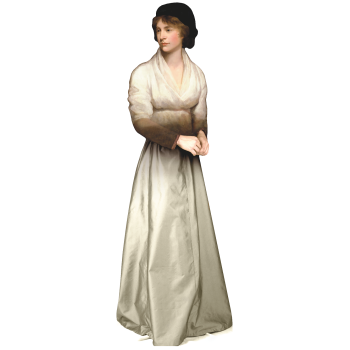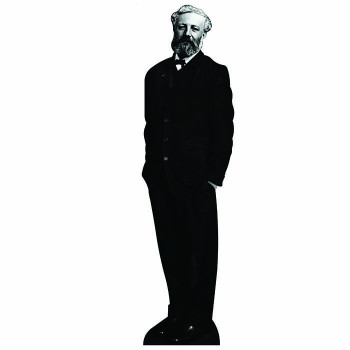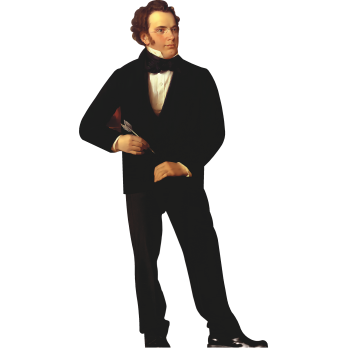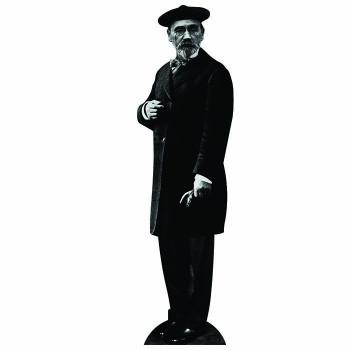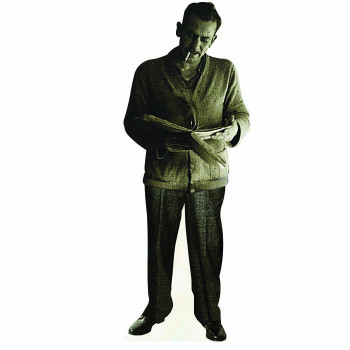CLAUDE MCKAY CARDBOARD CUTOUT
-
$0.00
Available Options
Buy Instantly With
Introduction to Claude Mckay
Celebrate the legacy of one of the most influential figures of the Harlem Renaissance with our lifesize cardboard cutout of Claude McKay. Perfect for literary displays, educational events, or as an inspiring addition to your home or office, this cutout captures the dynamic and powerful presence of Claude McKay, reflecting his significant impact on literature and culture.
Background of Claude Mckay
Claude McKay was born Festus Claudius McKay on September 15, 1889, in Nairne Castle, Jamaica. He was the youngest of 11 children in a family of farmers. McKay's early education was influenced by his brother, a schoolteacher, and Walter Jekyll, an Englishman who mentored him in literature and encouraged his poetic talents.
In 1912, McKay published his first book of poetry, "Songs of Jamaica," which celebrated his Jamaican heritage and life in the Caribbean. The same year, he moved to the United States to study agriculture at Tuskegee Institute and later at Kansas State University. However, McKay soon moved to New York City, where he became deeply involved in the burgeoning Harlem Renaissance.
McKay's poetry and prose were deeply influenced by his experiences as an immigrant and his observations of racial injustices in America. His work often addressed themes of racial identity, social justice, and resistance. One of his most famous poems, "If We Must Die" (1919), is a powerful call to action against oppression and has been widely anthologized.
In 1922, McKay published "Harlem Shadows," a collection of poems that solidified his place as a leading voice of the Harlem Renaissance. The collection explored the struggles and resilience of African Americans, using both traditional and modern forms of poetry.
McKay also ventured into fiction, writing several influential novels. "Home to Harlem" (1928), his first novel, became a bestseller and was notable for its vivid portrayal of Harlem life. His other significant works include "Banjo" (1929), which explores the lives of black seamen in Marseilles, and "Banana Bottom" (1933), which delves into Jamaican culture and identity.
Throughout his life, McKay traveled extensively, living in Europe, North Africa, and the Soviet Union. His international experiences broadened his perspective and influenced his writing, adding depth and complexity to his exploration of identity and social issues.
In his later years, McKay converted to Roman Catholicism and wrote on a variety of topics, including his spiritual journey. He continued to write and advocate for social justice until his death on May 22, 1948, in Chicago, Illinois.
Cultural Impact of Claude Mckay
Claude McKay's impact on literature and culture is profound and enduring. As a key figure in the Harlem Renaissance, his work contributed significantly to the cultural and intellectual flourishing of African American arts in the early 20th century.
McKay's poetry, characterized by its lyrical beauty and passionate social critique, addressed the complexities of black identity and the fight against racial oppression. His poem "If We Must Die" became a rallying cry for resistance and empowerment, resonating with readers across generations. The poem's defiant tone and call for dignity in the face of persecution made it a powerful symbol of the struggle for civil rights.
"Harlem Shadows" was one of the first collections of poetry by an African American to gain widespread acclaim, helping to elevate the status of black writers in American literature. McKay's ability to blend traditional poetic forms with contemporary themes and issues set a precedent for future generations of poets and writers.
McKay's novels, particularly "Home to Harlem," provided a vivid and unflinching portrayal of black life in America and the Caribbean. His exploration of themes such as migration, cultural identity, and the search for belonging resonated with readers and contributed to the broader understanding of the African American experience. His work influenced subsequent writers of the Harlem Renaissance and beyond, including Langston Hughes, Richard Wright, and James Baldwin.
In addition to his literary contributions, McKay's international experiences and advocacy for social justice had a broader cultural impact. His engagement with socialist and anti-colonial movements highlighted the interconnectedness of struggles for freedom and equality worldwide. His writings and activism emphasized the importance of solidarity and global awareness in the fight against oppression.
McKay's legacy as a pioneering poet, novelist, and social critic continues to inspire and challenge readers and writers today. His works remain essential reading for those interested in the history of African American literature, social justice, and the complexities of cultural identity.
This cutout of Claude McKay celebrates his remarkable contributions and enduring legacy as a master poet and novelist. It serves as a tribute to his literary brilliance, his impact on the Harlem Renaissance, and his significant role in shaping the cultural and intellectual heritage of the 20th century.
| Size | |
| Width | |
| Height | 72 Inches |
- Brand: Historical Cutouts
- Product Code:H79166
- Availability:In Stock
LEARN MORE ABOUT OUR AVAILABLE MATERIALS

LIFE SIZE HISTORICAL CUTOUTS
We have been the leading historical based cutout supplier for nearly 10 years. We have worked with many schools, museums, and colleges across the country to provide stunning graphics from hsitory. Historical Cutouts are available in 3 materials and come contour cut with an easel to be self standing. Click below to learn more about each material and our cutout process.
Learn More
LIFE SIZE HISTORICAL WALL DECALS
All of our historical figures are available as a life size wall decals. Vinyl wall decal orders come ready to apply with squeegie and instructions. Having trouble? Check out our how to youtube video. Our graphics are printed on tear resistant PhotoTex Vinyl using our high definition 4 color plus white printing process.
Learn More
HISTORICAL ACRYLIC CUTOUTS
Desktop Legends are a smaller version of our life size cutotus printed on 3/16th" acrylic. All of our historical cutouts are also available as a desktop legend. These acrylic statuettes come in two sizes, 8" and 12". If you would like to learn more please click below.
Learn MoreRELATED PRODUCTS
-
Thomas Hardy Victorian Realist Author Cardboard Cutout
Introduction to Thomas HardyExperience the literary legacy of one of the most revered figures in Eng..
P.T. Barnum Cardboard Cutout
Introduction to P.T. BarnumCelebrate the legacy of one of the most influential showmen and entrepren..
Frederic Chopin Cardboard Cutout
Introduction to Frederic ChopinCelebrate the legacy of one of the most beloved composers and pianist..
Sherlock Holmes and Watson Sitting Life Size Cardboard Cutout
2 55x46 inch cardboard cutouts of Sherlock Holmes and Watson discussing the latest case. Elementary,..
Henri Matisse Cardboard Cutout
Introduction to Henri MatisseCelebrate the legacy of one of the 20th century’s most influential arti..
Antonin Dvorak Cardboard Cutout
Introduction to Antonin DvorakCelebrate the legacy of one of the most influential composers of the R..
Feminist Mary Wollstonecraft Cardboard Cutout
Introduction to Mary WollstonecraftCelebrate the legacy of one of the most influential figures in fe..
Jules Verne Cardboard Cutout
Introduction to Jules VerneCelebrate the legacy of one of the most imaginative and influential scien..
Franz Schubert Composer Cardboard Cutout
Introduction to Franz SchubertImmerse yourself in the timeless beauty of classical music with our Fr..
Emile Zola Cardboard Cutout
Introduction to Emile ZolaCelebrate the legacy of one of the most influential writers and social act..
John Steinbeck Cardboard Cutout
Introduction to John SteinbeckCelebrate the legacy of one of America's most beloved and influential ..
Albert Camus Cardboard Cutout
Introduction to Albert CamusCelebrate the legacy of one of the most influential existentialist and a..

